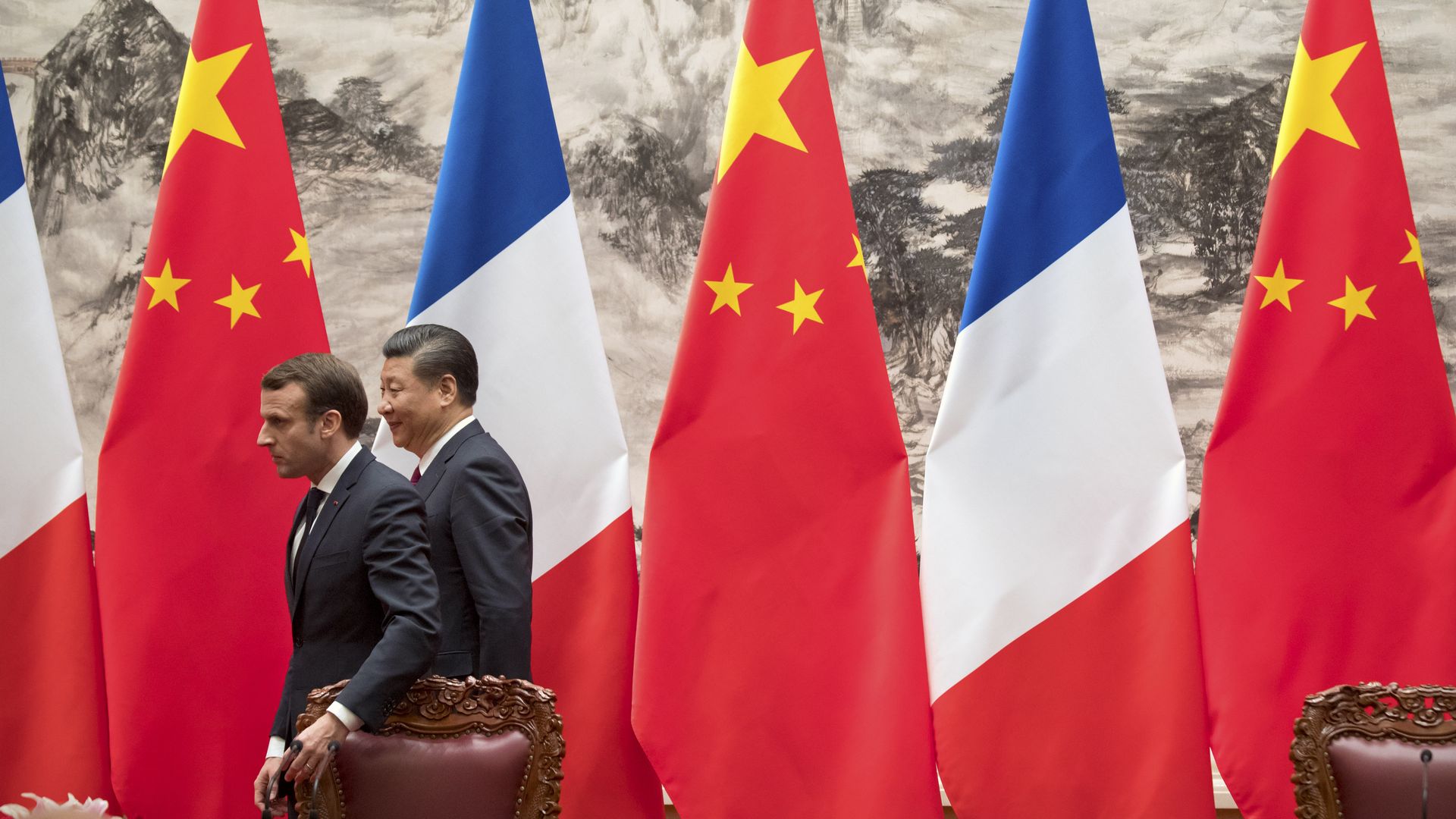 While Beijing is courting the European Union for support in a trade war, European officials are sounding the alarm on China's ambitions in their countries. Why it matters: If the U.S. starts closing off its market to the Chinese, Beijing needs the EU to remain neutral and stay open to business with China, but the Europeans are increasingly frustrated with China's behavior and wary of its ever-growing influence.
While Beijing is courting the European Union for support in a trade war, European officials are sounding the alarm on China's ambitions in their countries. Why it matters: If the U.S. starts closing off its market to the Chinese, Beijing needs the EU to remain neutral and stay open to business with China, but the Europeans are increasingly frustrated with China's behavior and wary of its ever-growing influence.
Show less
The backdrop: This week, Beijing's top trade official, Fu Ziying, met with several European ambassadors as trade disputes with the U.S. escalate, per Reuters. Days later, German news outlet Handelsblatt reported that 27 of the 28 European Union ambassadors co-signed a report criticizing President Xi Jinping's trillion-dollar Belt and Road Initiative, an infrastructure plan that pulls in Europe.
Why China needs the EU
The EU is Beijing's biggest trading partner, per the European Commission, and they trade over $1 billion in goods and services a day.
The EU is also the biggest investor in China. At the end of 2015, the value of European investments in China was about $207 billion, compared to about $84 billion from the U.S. at that time.
Behind the numbers: A hefty portion of Europe's direct investment comes from factories which manufacture high-end appliances in China that come with a European label, Yukon Huang, an expert on China's economy at the Carnegie Endowment for Peace, tells Axios.
The bottom line: The trade and investment relationship between China and the EU is strong enough that China can survive loss of access to the U.S. market if the EU remains open for business, Huang says.
Europe's concerns
China's Belt and Road Initiative includes ports in European waters and railroads that cut through EU nations, and while some countries welcome the infrastructure — paid for and built by the Chinese — others fear it'll give China broad influence in the more politically unstable Central and Eastern European nations.
The EU ambassadors' report says the Initiative "runs counter to the EU agenda for liberalizing trade and pushes the balance of power in favor of subsidized Chinese companies," according to Handelsblatt.
The only ambassador who didn't sign its contents was Máté Pesti of Hungary, a nation which relies heavily on Chinese investment. Hungarian Prime Minister Viktor Orbán said in January, ""Central Europe has serious handicaps to overcome in terms of infrastructure ... If the European Union cannot provide financial support, we will turn to China."
Western European nations are concerned about weaker countries getting close to Beijing. On a state visit to China in January, French President Emmanuel Macron sounded the alarm:
"For China, the new Silk Roads are also a tool to promote new international standards, rules and norms that are different from those currently used by France and other European countries ... By definition, these roads can only be shared. If they are roads, they cannot be one-way."
— Emmanuel Macron
What to watch:
There's an EU–China summit coming in July where these issues are sure to be on the table.
European companies have a lot to lose in a U.S.–China trade war, and European leaders have been reluctant to take sides in the dispute. But the EU could soon become Trump's next target, the Wall Street Journal's Simon Nixon writes.
Germany, in particular, has been on President Trump's radar in the past. The U.S. had a $68 billion trade deficit with Germany in 2016, it's second-largest deficit behind that with China.
No comments:
Post a Comment